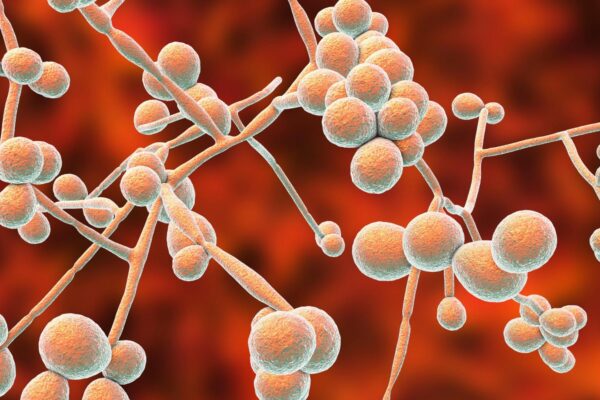MEDICATIONS FOR BLADDER & BOWEL HEALTH
JOIN OUR NEWSLETTER
Receive custom tools to help you manage your condition and get the latest in bladder and bowel health from NAFC!
MEDICATIONS FOR BLADDER AND BOWEL HEALTH
Your physician may prescribe medication for bladder and bowel health incontinence issues as a first form of treatment. These specifically designed drugs may be used alone or in combination with behavioral and exercise treatments. Below are some common medications created to help with a specific type of incontinence.
OVERACTIVE BLADDER AND URGENCY INCONTINENCE
These medications calm bladder muscles, reducing incidence of overactive bladder:
Ditropan® (oxynutynin) *transdermal/patch
Detrol® (tolterodine)
Detrol LA® (tolterodine)
Enablex® (darifencacin)
VESIcare® (solifenacin)
Sanctura® (trospium chloride)
Sanctura XR® (trospium chloride extended release)
Toviaz® (feosterodine fumarte)
Gelnique® (oxybutynin chloride) *topical gel
Myrbetriq® (mirabegron)
Botox® (onabotulinumtoxinA) *injection
Oxytrol® (oxybutynin transdermal system)
Click here to download a complete and detailed list of the brand name and generic medications used for treating overactive bladder and urgency incontinence.
STRESS URINARY INCONTINENCE
These drugs help tighten up the bladder outlet muscle:
Tofranil® (imipramine)
Sudafed® (pseudophedrine)
ACCIDENTAL BOWEL LEAKAGE (ABL)/BOWEL INCONTINENCE
Medications designed to help control diarrhea:
Imodium® (Ioperamide)
Lomotil® (diphenoxylate with atropine)
Nulev® (hyoscyamine sulfate)
Lotronex® (alosetron) *for women only/IBS predominant
BENIGN PROSTRATIC HYPERPLASIA (BPH)/NOCTURIA
Flomax® (tamsulosin)
Uroxatra®l (alfuzosin hydrochloride)
Rapaflo® (silodosin)
Proscar® (finasteride)
Avodart® (dutasteride)
Cialis® (tadalafil)
Xiaflex® (collagenase clostridium histolyticum)
URINARY RETENTION
Duvoid® (bethancechol)
Urecholine® (bethancechol)
POST-MENOPAUSAL WOMEN
These drugs help improve the condition of the vagina and urethral lining due to a decrease in female hormones after menopause.
- Estrace® (estrogen)
- Estring® (estrodiol vaginal ring)
- Vagifem® (estrodiol vaginal tablets)
OVERFLOW INCONTINENCE
Overflow incontinence is a more rare type of incontinence that may be caused by an underactive bladder muscle, a decrease in bladder muscle tone, or restricted urine flow from an enlarged prostate in males. These drugs stimulate the bladder muscle, relax the sphincter, or shrink the prostate to allow unrestricted urine flow.
Hytrin® (terazosin)
Cardura® (terazosin)
Uroxatral® (alfuzosin)
Proscar® (finasteride)
BEDWETTING
Bedwetting may occur when too much urine is produced. These drugs work by decreasing bladder contractions, tightening the sphincter muscle or decreasing urine production.
Tofranil® (imipramine)
DDAVP® nasal spray (desomopressin)
PEYRONIE’S DISEASE
Verapamil® (calcium channel blocker)
Interferon
Xiaflex®(collagenase clostridium histolyticum)
HIGH BLOOD PRESSURE/FLUID RETENTION
Lasix® (furosemide)
Bumex® (bumetanide)
URINARY TRACT INFECTION
Sudden onset of urine leakage can be caused by bacteria or urinary tract infections. Antibiotics can be prescribed by your doctor to cure infections that cause leakage.
Talk with your doctor about what, if any, medication may be right for your specific condition. You are encouraged to report negative side effects of prescription drugs to the FDA. Visit www.fda.gov/medwatch or call 1-800-FDA-1088.
RELATED ARTICLES

Treating Overactive Bladder With Medications Or Injections
Do you live with symptoms of Overactive Bladder (OAB)? The urgent, frequent need to go to the bathroom? If so, you’re not alone. Nearly 33

How To Get Rid Of A Bladder Infection Fast
If you’re reading this post, you’re likely in the midst of a bladder infection or urinary tract infection (UTI) and are in some serious need

Ask The Doc: Surgery For BPH?
Question: What types of surgery options are available for BPH? Answer: BPH, or Benign Prostatic Hyperplasia, is when a man’s prostate is enlarged. BPH is

Treating Overactive Bladder With Medications Or Injections
Do you live with symptoms of Overactive Bladder (OAB)? The urgent, frequent need to go to the bathroom? If so, you’re not alone. Nearly 33


